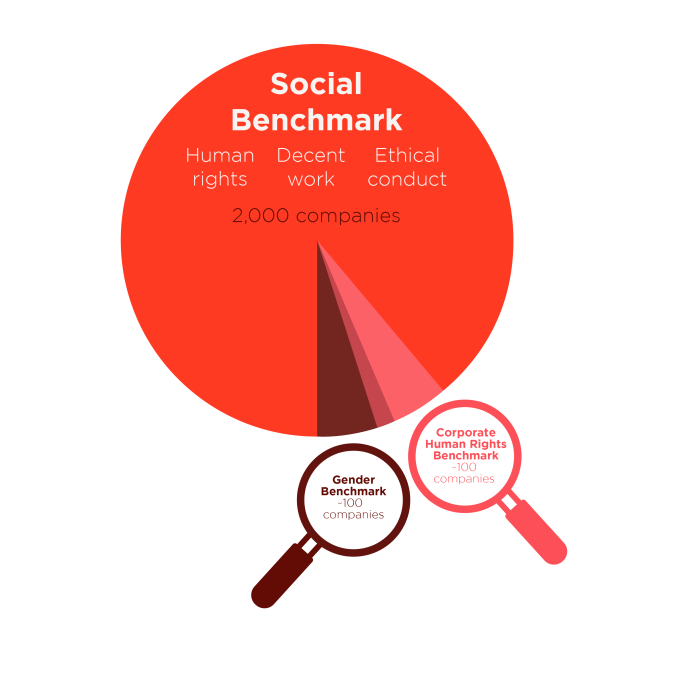The Methodology for the 2026 Gender Benchmark
This methodology lays out the metrics that the World Benchmarking Alliance will use to assess and rank approximately 100 of the most influential companies in our 2026 Gender Benchmark. It captures how society expects companies to drive and promote gender equality and women’s empowerment across their entire value chain. The benchmark includes companies from two high-risk sectors: the apparel sector and the food and agriculture sector.
The report also details how we will assess 2,000 of the largest and most influential companies globally – also known as the ‘SDG2000’ – on a subset of this methodology.
We will publish the next iteration of the Gender Benchmark in early 2026.
About the methodology
The Gender Benchmark Methodology builds on more than four years of research and collaboration with a wide range of experts and stakeholders, including other benchmarking and standard-setting organisations. Taking a holistic approach, companies in the Gender Benchmark are assessed across the measurement areas of governance and strategy, representation, compensation and benefits, health and well-being, violence and harassment, and marketplace and community. These measurement areas look beyond commitments and into performance across companies’ entire value chains. To align with our other methodologies, minor changes were made in 2024.
How does the World Benchmarking Alliance assess the most influential companies globally on fundamental social issues?
The World Benchmarking Alliance has a set of benchmarks to assess companies on their responsibility to respect human rights, provide and promote decent work and act ethically.
Our Social Benchmark assesses the initial steps that all 2,000 companies that make up our SDG2000 should take to meet their responsibility.
Our Corporate Human Rights Benchmark and Gender Benchmark examine in greater depth how a subset of these companies in high-risk sectors address the catalytic issues of human rights and gender equality.
